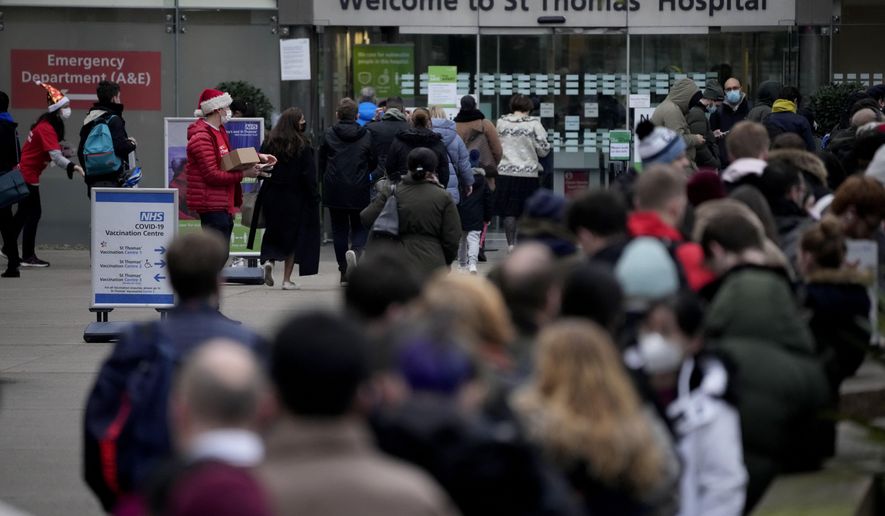The director of the World Health Organization said Tuesday that 77 countries have reported cases of the omicron variant of the coronavirus and that it’s probably in most countries even if it hasn’t been detected yet.
“Omicron is spreading at a rate we have not seen with any previous variant,” said Dr. Tedros Ghebreyesus, WHO’s director-general. “We’re concerned that people are dismissing omicron as mild … Even if omicron does cause less severe disease, the sheer number of cases could once again overwhelm unprepared health systems.”
The fast-spreading variant, first detected in southern Africa, has prompted countries to shut their borders; however, the United Kingdom plans to remove 11 African countries from its travel red list on Wednesday, according to media reports.
In the U.S., the delta variant remains the dominant strain, making up about 97% of COVID-19 cases. The omicron variant accounted for about 3% of COVID-19 cases detected as of Tuesday, according to the Centers for Disease Control and Prevention. The percentage of cases from omicron has increased from less than 1% as of Dec. 4.
The omicron variant has been detected in 30 states and the District of Columbia as of Monday, the CDC said.
The CDC said it doesn’t yet know how easily the omicron variant spreads, the severity of illness it causes or how effective current vaccines and medications are against the strain.
However, a study from South African researchers published Tuesday found that Pfizer-BioNTech’s COVID-19 vaccine is less effective against the omicron variant. The study found that the vaccine had a 33% protection from infection, a drop from 80% previously, and a 70% protection from hospitalization, down from 93% during the wave of delta infections.
The analysis, conducted by private health insurer Discovery Health and the South African Medical Research Council, looked at more than 211,000 COVID-19 test results from Sept. 1 to Dec. 7. Of those, 41% were adults who had received two doses of the Pfizer vaccine.
The study examined samples taken before Oct. 31, when the omicron strain was not likely heavily circulating in South Africa, and after Nov. 15, when the variant was gaining traction.
“Vaccines alone will not get any country out of this crisis,” Dr. Ghebreyesus said Tuesday. “It’s not vaccines instead of masks. It’s not vaccines instead of distancing. It’s not vaccines instead of ventilation or hand hygiene. Do it all. Do it consistently. Do it well.”
The omicron variant was reported to the WHO on Nov. 24. The strain was first discovered in samples collected on Nov. 11 in Botswana and on Nov. 14 in South Africa.
On Nov. 26, WHO designated the omicron strain as a variant of concern, with the U.S. following suit on Nov. 30. The U.S. confirmed its first case of omicron on Dec. 1 in California.
SEE ALSO: FDA pick Robert Califf pledges to make COVID-19 task ‘No. 1’
For more information, visit The Washington Times COVID-19 resource page.
• Shen Wu Tan can be reached at stan@washingtontimes.com.




Please read our comment policy before commenting.